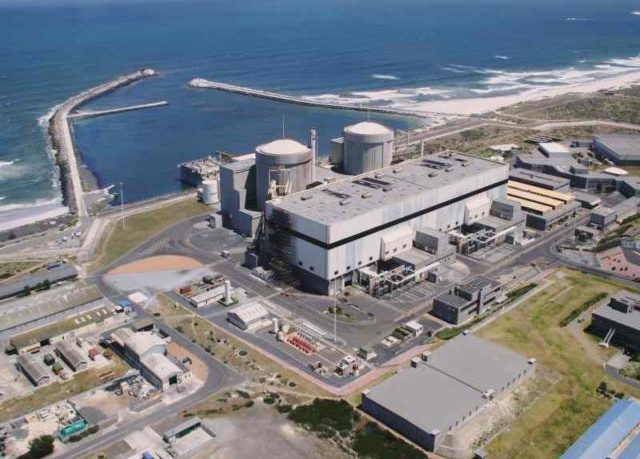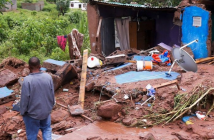Opinion
South Africa’s countrywide water shortage is fast becoming a daily if not hourly struggle for many South Africans, and as with most things of this nature, even more so for the economically challenged.
The poorest of the poor will soon be faced with life threatening circumstances, unless a long-term view is taken to alleviate the pressure on our limited natural fresh water reserves in the country. Access to fresh water is a global issue that is not unique to South Africa, however South Africa is classified as a water-stressed country, which dramatically exacerbates the issue. While the global average rainfall is around 985 millimetres annually, South Africa receives an annual rainfall of merely 492 millimetres, roughly half of the global average.
During a ministerial interactive session on transformation on 15 February 2019, the Department of Water and Sanitation exclaimed that without urgent and appropriate interventions South Africa will face a deficit of roughly 3,000 billion litres of water per year by 2030. This would be detrimental not only to the people of South Africa, but also to agriculture, livestock and the economy.
If nothing is done to curb this issue a severe water crisis, very comparable to the electricity shortage which led to unavoidable large scale loadshedding, is seemingly inevitable in South Africa. A new research report focused water security which was tabled in parliament by the Minister of Human Settlements, Water & Sanitation, Lindiwe Sisulu into the water crisis in South Africa revealed that water-shedding is now a very real possibility for the country.
South Africa desperately needs to prioritise this issue and seriously consider a mix of available options to supply these huge water demands taking into account industrial development and economic growth. The country will thus need to consider other potential sources, which include water re-use, desalination, groundwater utilisation, water conservation and water demand management measures, rain water harvesting, recovering water from acid mine drainage, and the import of water intensive goods.
Considering the vast 3,000km coastline that South Africa is blessed with, water desalination needs to be seriously explored. The ocean accounts for 97% of the worlds water and should therefore be effectively utilised to lessen the strain on fresh water reserves.
Considering water desalination technologies
The Integrated Water Resource Planning for South Africa, A 2 Situation Analysis 2010 also recognises desalination of a varietyof waters as an important current and future source of water.This strategy document contains a strategic approach to theplanning, development and implementation of desalination tosupport more productive development and utilisation of ournational water resources.
Unfortunately most desalination technologies in the world, as well as in South Africa, use fossil fuels to generate the vast amount of energy needed to desalinate water and for this reason contribute to increased levels of greenhouse gases and are very resource intensive. Traditional desalination technologies are also rather expensive, and not many countries can afford them. For example, Saudi Arabia has spent roughly $4 billion building desalination plants that will provide the Arabic country with nearly 350 Gl/yr. (around 900,000 cubic meters a day).
That said, there a large variety of proven water desalination technologies that exists currently such as multi-effect distillation, where excess heat from the cooling cycle of a nuclear power station is used to desalinate water and is currently the most economical method of distillation. Koeberg has currently deployed a small distillation treatment facility for their water usage. This technology was largely recognised on the basis that South Africa pursues a Nuclear Fleet strategy as proposed in the Integrated Resource Plan (IRP, 2010).
Therefore the investment on nuclear expansion programme is proving itself to be a real necessity to not only provide our country with affordable and environmentally friendly electricity but also the opportunity to ensure water security and support the agricultural sector to grow our ailing economy.
During the Department of Mineral Resources and Energy Budget Vote the Minister said that, “Koeberg demonstrates the benefits of nuclear power, and gives reason to South Africa with the nuclear expansion programme. Among these are the provision of ancillary services such as: grid balancing, back and inertia to intermittent electricity sources without which it would be a serious challenge. The decay heat from the plant enables it to desalinate seawater: thus assisting to mitigate against water shortages’.
The Eastern Cape Province is sadly one of the most economically underdeveloped provinces which also happens to face the largest water crisis in the country today. The establishment of the once planned Nuclear Project at Thyspunt would have not only provided the necessary boost to the Province’s socio-economic development, including industrialisation and job creation but would have also ensured water security through desalination, further improving the agricultural sector as well as food security in the province.
In addition, the future prospects of large scale water, agriculture, renewable energy and petrochemical industries in this region would have benefited significantly from the high quality nuclear artisanal skills which would have been developed in the area. Nuclear energy has a global trend of upskilling local inhabitants and fostering economic growth in the region they are built. Sadly this seems to be an opportunity lost for the people of the Eastern Cape.
Author: Gaopalelwe Santswere, Nuclear Physicist
This article was originally published on ESI Africa and is republished with permission with minor editorial changes.
Disclaimer: The articles expressed in this publication are those of the authors. They do not purport to reflect the opinions or views of Green Building Africa, our staff or our advertisers. The designations employed in this publication and the presentation of material therein do not imply the expression of any opinion whatsoever on the part Green Building Africa concerning the legal status of any country, area or territory or of its authorities.















